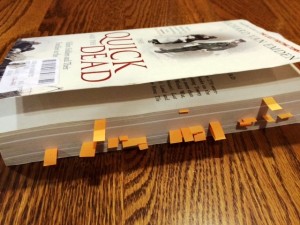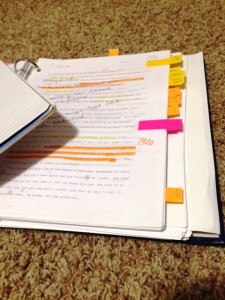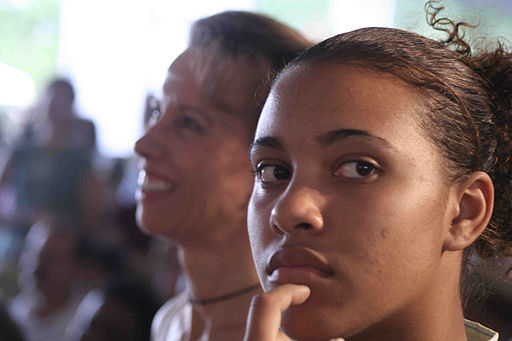Blogger: Michelle Ule
Sitting in for Janet Grant who is attending the International Christian Retail Show this week.
In the course of a professional writing life you have to write despite distractions.
I experienced that situation recently myself. A series of events in my personal life made it difficult to concentrate on the project I’m writing.
Eerily, some of the events in my life were feeling too close to what my characters were experiencing.
I couldn’t focus well.
I’ve got enough time in my deadline, I could slip a week if necessary, though I didn’t like it.
But, my family needed me and I needed them.
That does not mean I stopped the work, just the concentrated writing.
Here are six suggestions of things to do when distractions keep you from focusing on your current project.
1. Recognize you can’t do it and give yourself permission to work on something else for a set amount of time.
Step away, perhaps, from the actual drafting, but not the writing life.
2. Hunt up pertinent and current research needs
In my case, I discovered a book online that would answer many of the questions I needed for the particular chapter I was currently writing.
I ordered the book and since it would take, even with fast transport, four days to arrive, I had time to focus on other things.
The book arrived today, I will read it tonight and tomorrow and am itching to get back to work.
3. Do auxiliary research for later.
I spent an entire day researching some of the obscure facts I could use for that chapter, but which were probably more pertinent to chapters coming.
I typed that information into its own pages, marked with the individual’s name, and now have a lot of backstory I can call up when the time is right.
I didn’t waste my time, I just aimed it in a different direct.
Finding that information, by the way, encouraged me that while I may not have been writing, I was working on my project.
4. Work on social media.
In the last four days, I have written–as of this post–fourteen blog posts for various websites.
I’ll write one more tomorrow.
They’re all scheduled and I don’t have to think about writing a blog for three weeks. That frees up lots of hours of writing going forward.
I’ve also put together spreadsheets for Hootsuite and will do the same with my Facebook author page.
 5. Outline your next chapter in detail, or even the next couple chapters.
5. Outline your next chapter in detail, or even the next couple chapters.
I took all the research and quotations I will need for the next chapter and placed them in a new Word document. (Scrivener people probably have this at their fingertips already).
Once the distractions ease and I get back to work, I should be able to write straight through using that outline.
The time has not been wasted. I’ve just simplified things for myself.
6. Read a novel in your subject field.
Sometimes, you just don’t want to sit at the computer another hour.
Read something that is pertinent, but not research oriented, to your project.
I’ve read three such books in the last week.
They helped me with my issue, and one of them is going to be used as background information for this chapter I’m about to jump back into.
The crisis is past in my family–I think–I’m settling down. I’m just about ready to get back to work on my book.
I can hardly wait.
All it took was a little concentrated effort to get past the distractions.
Tweetables
Writing when distractions cause trouble. Click to Tweet
6 tips for handling writing distractions. Click to Tweet


Great post, Michelle, and I’m so glad your crises ar winding down! Eerie how life can imitate art…I wrote a three-legged dog into BPH, and a few months after I finished it one of our guys developed cancer and had exactly that leg amputated. (She’s still around, eight years later…and is 18 or 19 years old…pretty good for a Rottweiler.)
* My distractions take forms that are perhaps different, because at least one of them isn’t transient.
1) First, it really hurts too much to write. A comment like this one has to be done in stages, because it gets to the point that I simply can’t concentrate well enough to produce the quality I’d like. There isn’t an answer to this except to break down writing into manageable time periods and accept that when I’ve got to stop, it’s better to just stop for a bit than try to push through it. Doing the latter results in poor quality, and can shade my voice to the negative.
– Time taken from writing can be used to good effect by watching movies that have pacing and ambience that fits my genre; watching the director’s commentaries can be particularly useful. Much of the time now I can’t do anything BUT watch a movie. May as well make a virtue of a necessity.
2) The second major distraction is the erosion of morale that I suppose is inevitable under the circumstances. Aside from the loss of function, when one nears what seems to be the end of life, one is drawn to look back, and for me, at least, the retrospective isn’t pretty. It’s made me ask, “What right do I have to tell the stories I try to write, with the hopeful quality of which I strive to achieve?”
– As to the loss of function, I have to remind myself daily that if it were someone else, I would not berate him or her for lack of stamina and more than I would deride someone with a broken leg for running a 12-second 100. Fairness and compassion have to begin at home, else they’re just an affectation of pride.
– The question of feeling unqualified to write can also be addressed through fairness. While it’s true that there are things that by both training and experience would make me less than fully human in the eyes of many, I do still share the same divine spark. And I can still feel what my potential readers feel, even if for me much of this is something of a distant, misty dream of what life could be. There is room for this on the shelf, I think. The dude who’s eaten at the Waldorf-Astoria only once or twice will see it through senses that do not take the experience for granted, as a right. Thus, love is a privilege, and I try to write that.
* Michelle, methinks I’ve wandered afield from the topic. For that I apologize, but I’m a bit too worn down now to do more than click on ‘SUBMIT’. Submit what I have written to you, and my life and writing to God.
Andrew, your words always touch me. Thanks for sharing.
You did a fine job, as always, Andrew, with profound distractions that we all may need to face some day. Bravo and thanks for sticking with it.
You’ve made several excellent points in keeping with this post: watching a movie even vaguely related to your project DOES help keep your mind flowing.
Yesterday my husband and I saw Max McLean’s stage production “C.S. Lewis: A Reluctant Convert,” which reminded me his process of conversion was taking place in Oxford, England, at the same time Biddy Chambers was compiling My Utmost for His Highest–which just happens to be the chapter I’m working on in the biography right now.
The 70 minute play took my mind back to my own book world and got me up early this morning to add a few more items. 🙂
But your first point is particularly germane–to recognize limitations and stop when the hurt, fear, disorder, chaos, burning dinner, whatever is causing your work to go in the wrong direction or to fragment.
That actually is the time, in my opinion, to write a few notes on the manuscript about where you’re headed, and then take that needed break (particularly if it’s dinner burning or the dog is desperate to get outside).
Sometimes you need longer than you think you do, but you only discover that when you’ve made the move.
Best wishes, as always, and thanks for your patience in typing it all out for us.
Andrew, as always, your words are wise and thought-provoking and practical. I LOVE that you infuse hope into your stories, even though it’s not always been an easy choice for you. And thank you for continuing to share your thoughts, even when it is in stages. They always inspire and make me think. 🙂
“What right do I have …?” I know that feeling. You always bless me, Andrew. Always.
This line touched me: “I do still share the same divine spark.” That’s why we’re all here.
Wow! Deep Monday morning thinking from Andrew and Michelle. We writers do well to recognize our physical and emotional limitations. As Andrew points out, just pushing through degrades quality.
* I often approach problems from the backside instead of head-on. Your approach, Michelle, feels right to me.
* I am studying the Trinity, preparing to write the next Bible study series for women in our church. I had a hundred random thoughts. In my prayer time yesterday, those thoughts marched across my journal in a series of logical and interesting lesson titles. God’s gift, yes, but built on the foundation of hours already invested.
And of course you probably get ideas while just sitting in church listening to the sermon . . .
Where’s that bulletin to scribble down ideas? 🙂
I carry a few 3×5 notecards just for those moments of inspiration.
Hi Michelle,
Thanks for sharing these tips. I’m glad to hear life is settling down for you and your crisis is past. I hope you have a great week!
Wonderful ideas, Michelle. I also like to research and read an inspiringly well written novel if I have to take a break.
Wonderful, Michelle. I don’t have novel deadlines, but I do have article deadlines and sometimes I’m preparing to speak. About two years ago, I had a major distraction of having my appendix removed. I was very sick and in the hospital for a week. This all happened just before an article deadline and only 2-1/2 weeks before a speaking engagement. I was so thankful that I was prepared ahead of time.
Wow. This is what I find myself doing naturally when life is overwhelming – I gravitate toward research or articles/interviews or organization. I usually feel guilty, but you’re absolutely right! Be kind to yourself. Recognize your limitations. Don’t see it as wasted time, but redirected. Thank you for an uplifting and enlightening post!
These are great suggestions, Michelle. I love your tips! I’ve done some of them, namely the work on social media and blog posts when I’m distracted by life.
*Sometimes, I’ll work on another aspect of my story, or I’ll read from a craft book when I can’t be actively drafting.
*And I loved what Andrew said about knowing our limitations and working within them. Sometimes I chafe at this, but there is great wisdom in doing this. 🙂
So sorry to hear about your family crisis, Michelle. I’m glad that it’s winding down now. I went through a time just recently when I let life distractions (not a legitimate crisis in my case) get in the way of my writing for a while. Some were necessary, some not so much. I wish I had used my time off of writing as productively as you did! You’ve given me some great ideas for how to handle such periods much better in the future. Thanks!
Happy to help everyone. The writing life has enough challenges, it’s helpful to give yourself grace when you need it.
Our family has weathered the storm and appears to be doing fine and I’m back to the book.
Thanks.